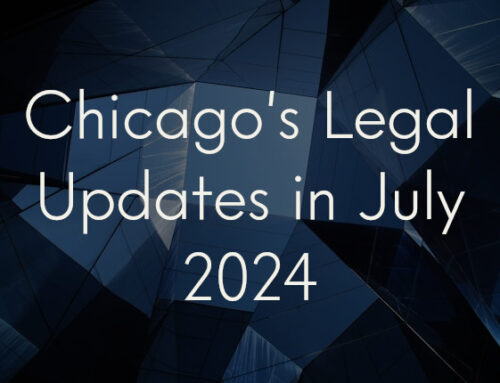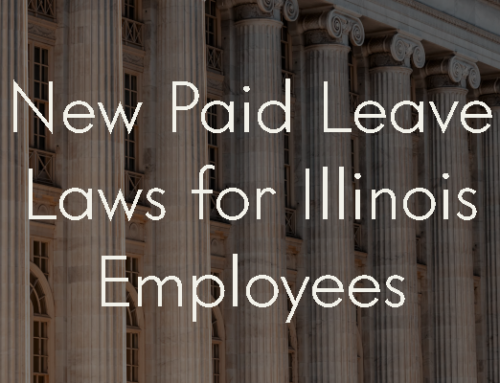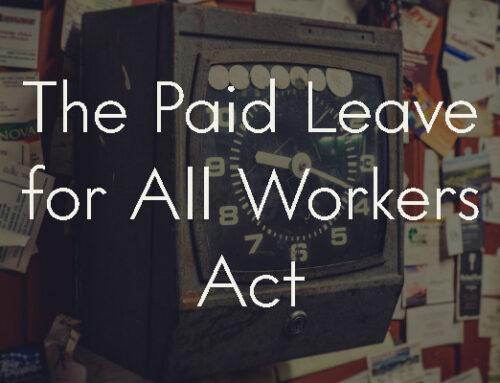With the holidays behind us, it’s time to get back to business and, with the turning of the calendar, your policies and processes might need to be updated to match changes in the law. The Illinois legislature passed several laws last year, effective on January 1, which affect small businesses. Here are some of the most relevant changes:
- The Illinois state minimum wage rose to $9.25 per hour. Tipped minimum wage increased to $5.55 per hour. On July 1, 2020, minimum wage will increase to $10 per hour. This was effected in SB 1.
- Employers can no longer keep gratuities and tips. These are now considered to be the property of the employees. This was effected in HB 3405.
- All employers in Illinois must provide annual sexual harassment prevention training. They can now be held liable for harassing conduct that substantially interferes with the work of an independent contractor or for creating a hostile work environment for the independent contractor. Restaurants and bars have specific, separate training requirements pertaining to the industry. This was effected in SB 0075.
- All single-occupancy restrooms in all existing and future public buildings or public accommodations must be labeled as gender-neutral. This was effected in SB 556.
- Illinois legalized recreational cannabis use for adults over the age of 21, provided they obtained it from a properly licensed dispensary. Employers can prohibit employees from using Cannabis while on the job. This was effected in HB 1438.
- Companies that collect personal information about Illinois residents are now required to report data breaches that impact more than 500 Illinois residents to the Attorney General. The Attorney General can publish information about the breach to alert consumers. This was effected in SB 1624.
- A new unit within the Attorney General’s office has been created to investigate businesses that underpay employees, have poor working conditions, or avoid tax and labor responsibilities. This was effected in SB 0161.
- The City of Chicago raised the municipal restaurant tax to 0.5% This tax is imposed on the sale price of all food and beverages sold at retail by the restaurant. This was effected in Municipal Code 3-30.
Most of these laws improve the working conditions or customer experiences at restaurants and public buildings. If you want to stay in compliance with the law (and you should!), your policies and operations may well need to be revised. Have questions about what these changes mean for you? We can help you find the answers. Contact us today!





